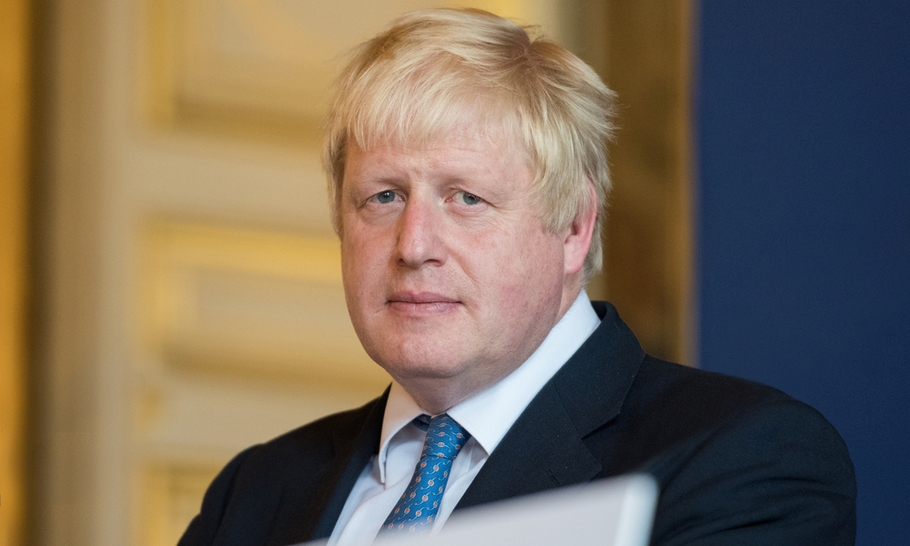Boris, his “Dear Donald” letter and the backstop

Picture: Shutterstock
Once more unto the border, dear friends — the Northern Irish one, that is. The Prime Minister has written a four-page letter to the President of the European Council which is surely destined to enter history as Boris’s “Dear Donald” letter.
Its cordial form of greeting is, however, the only friendly thing about it. For this letter is a declaration of war on the backstop — or, to put it another way, a declaration of independence from the European Union. Its animating idea, which recurs several times in slightly different words, is that the backstop is anti-democratic and inconsistent with British sovereignty.
The letter argues that the UK would be bound, “potentially indefinitely”, into an international treaty from which there would be “no sovereign means of exiting unilaterally” and which “affords the people of Northern Ireland no influence over the legislation which applies to them”.
Both these propositions are true; but both apply, more or less, to all member states of the EU. The only legal means of exiting the EU is by invoking Article 50 of the Treaty of Lisbon, which has existed for just 10 of the 62 years since the Treaty of Rome. The Brexit process is testing the practicality of leaving the EU to destruction.
Nor do the 508 million people who live in the 28 member states have any appreciable influence over the EU legislation that governs them. Unusually, last May more than half of the electorate voted in elections for the European Parliament, but the politicians and officials who really matter in Europe are not accountable to it. Nobody in Brussels believes that there is much to be done about this “democratic deficit” — which is why nothing much has ever been done about it.
So the “Dear Donald” letter is really throwing down the gauntlet to the EU. What is unacceptable for the people of Northern Ireland is unacceptable for the rest of the UK and, by implication, for the rest of Europe. For Brussels to accept that the backstop violated British sovereignty and was anti-democratic would be tantamount to admitting that the EU suffered from the same defects. And that, as Boris Johnson knows, Donald Tusk will never do.
The letter also raises two further objections to the backstop. It is said to be inconsistent with “a sustainable long-term relationship with the EU”, because it forces the British to choose between keeping the whole UK inside the customs union or “seeing Northern Ireland gradually detached from the UK economy”. Neither outcome is acceptable.
Finally, the letter argues that the backstop risks undermining the Belfast or Good Friday Agreement, on which peace in Northern Ireland depends. Instead, it proposes that both the UK and the EU should make a legally binding commitment not to impose a hard border, but to work towards a different “solution” during the two year transition period envisaged if a withdrawal agreement can be reached.
Leo Varadkar, the Irish Taoiseach, has apparently already dismissed the solution proposed by the “Dear Donald letter” in an hour-long phone conversation with Boris Johnson. The backstop was, after all, Varadkar’s brainchild and he won’t abandon it lightly. But other politicians in the Republic lack his paternal attachment to it. If the price of clinging to this totem is a no-deal Brexit and EU tariffs that threaten to damage trade across the Irish Sea, then opposition to the backstop in the Dail is bound to emerge. Henri Quatre may have said that Paris was worth a Mass, but not everyone in Dublin thinks Belfast is worth a slump.
The real question is: do EU leaders genuinely care about peace and prosperity on the island of Ireland? Or is it really more concerned to make an example of the UK, not merely by imposing Carthaginian terms for Brexit, but by undoing the fragile basis of the Good Friday agreement, safe in the knowledge that the British will be blamed? If the answer is the former, then Chancellor Merkel and President Macron will be ready to discuss the “Dear Donald” letter with the Prime Minister this week. If it is the latter, they will refuse.
Let nobody doubt, however, that if Donald really wanted to avoid a no-deal Brexit, he would shut Angela, Emmanuel and Leo with Boris into his hotel suite in Biarritz, lock the door and demand that they come up with an alternative to the backstop. It isn’t solutions that are lacking, but the will to compromise.





